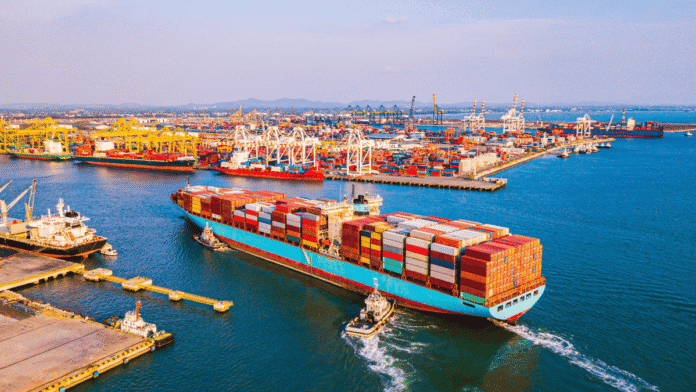The escalating conflict between Israel and Iran is expected to harden India’s marine insurance market, with annual premiums of over ₹5,000 crore. Industry players are warning of a spike in freight costs and insurance premiums due to mandatory war cover for vessels transiting the Red Sea en route to West Asia and Europe.
A spokesperson for Bajaj Allianz General Insurance said the situation has the potential to significantly disrupt maritime operations in the Middle East, especially around the strategic Strait of Hormuz—a key choke point through which nearly 25% of global oil supply passes.
ALSO READSimplify GST registration, plug tax leakage: FM
“This route has already been on the global watchlist and categorised as a “High Risk Area” with an additional war premium rate of 0.025% usually charged for ocean shipments,” the spokesperson said. “If the escalation continues, it will definitely have notable shifts in freight costs, marine war premiums, and overall demand for war risk cover.”
Concerns are mounting as the deadly conflict entered its seventh day, raising fears that Iran may block the Strait of Hormuz—threatening to choke off global oil flows and send oil prices soaring.
Gaurav Agarwal, Vice President – Special Lines, Marine at Prudent Insurance Brokers, said that even before the Israel-Iran escalation, a series of maritime disruptions had already prompted global insurers to either withdraw coverage in high-risk zones or mandate war risk protection—driving up insurance costs.
“Insurers first pulled war cover for vessel movement in the Black Sea during the Russia-Ukraine conflict. The Red Sea was designated a war zone amid the Israel-Houthi conflict. Now, global insurers allow movement through the Red Sea only with war cover in place,” he said. “If Iran moves to close the Strait of Hormuz, it could lead to fuel shortages, and insurers may again withdraw war cover altogether.”
ALSO READDual income couple: Split HRA, home loan
Marine insurance premiums are calculated based on multiple factors, including the quality and age of the vessel, type of cargo (hazardous or non-hazardous), nature of packaging (bulk or containerised), and voyage route. For instance, a single vessel carrying fertiliser could carry cargo valued at around ₹500 crore, while a crude oil tanker could carry cargo worth over ₹2,000 crore. Premiums typically range from 0.05% to 0.5%,
» Read More


